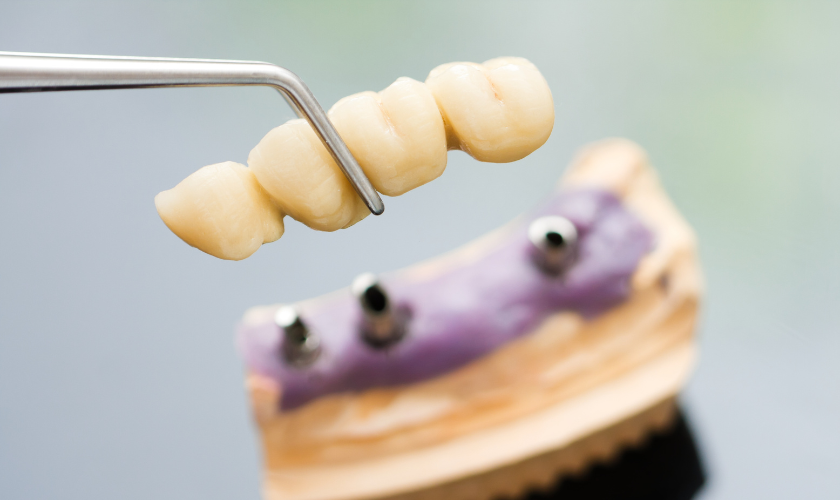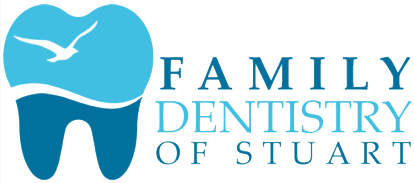5761 SE Federal Hwy, Stuart, FL 34997
Dental Bridges: Your Pathway to a Perfect Smile

Understanding Dental Bridges
Dental bridges are prosthetic devices crafted to bridge the gap created by missing teeth. They consist of artificial teeth, known as pontics, anchored to adjacent natural teeth or dental implants.
Importance of Dental Bridges
Dental prosthesis are crucial for maintaining oral health and overall well-being. Beyond just cosmetic enhancement, they prevent adjacent teeth from shifting, restore proper chewing and speech functions, and promote a harmonious smile, boosting confidence and self-esteem.
Benefits of Dental Bridges
The benefits of tooth bridges extend beyond aesthetics. They facilitate proper chewing, aiding in digestion and nutrient absorption, and prevent the collapse of facial muscles, which can occur with missing teeth. Additionally, bridges help maintain the alignment of surrounding teeth, preserving oral health in the long term.
Types of Dental Bridges
Traditional Dental Bridges
Traditional dental prosthesis are the most common type, comprising pontics held in place by dental crowns cemented onto adjacent natural teeth or implants. This sturdy design restores both function and appearance seamlessly.
Cantilever Dental Bridges
Cantilever bridges are suitable when only one adjacent tooth is available for support. They are anchored to one side of the gap, providing a reliable solution for replacing missing teeth in specific situations.
Maryland Bridges
Maryland bridges, also known as resin-bonded bridges, utilize a metal or porcelain framework bonded to the backs of adjacent teeth with resin. This conservative approach preserves the structure of adjacent teeth while effectively restoring aesthetics and function.
Procedure for Getting Tooth Bridges
Initial Consultation with a Dentist
The process begins with a comprehensive consultation with a dentist to assess oral health and discuss treatment options. X-rays and impressions may be taken to plan the placement of the dental bridge accurately.
Preparation of Abutment Teeth
For traditional or cantilever bridges, the abutment teeth adjacent to the gap are prepared by removing a portion of enamel to accommodate dental crowns. This step ensures a secure fit and proper alignment of the bridge.
Placement of the Tooth Bridge
Once the abutment teeth are prepared, impressions of the teeth are taken to fabricate a custom-made bridge. During a subsequent visit, the bridge is fitted, adjusted, and cemented into place, restoring the smile’s appearance and function seamlessly.
Maintenance and Care for Dental Implant Bridges
Daily Oral Hygiene Routine
Maintaining good oral hygiene is essential for preserving the longevity of dental bridges. This includes brushing twice a day with fluoride toothpaste, flossing between teeth and under the bridge, and using antimicrobial mouthwash to reduce plaque buildup.
Regular Dental Check-ups
Routine dental check-ups every six months are vital for monitoring the condition of dental bridges and detecting any issues early on. Your dentist will examine the bridge, assess its integrity, and address any concerns to ensure optimal oral health.
Avoiding Certain Foods and Habits
To prevent damage to dental bridges in Stuart, it’s advisable to avoid chewing on hard or sticky foods that could dislodge or damage the restoration. Additionally, habits like teeth grinding or clenching should be addressed to protect the integrity of the bridge and surrounding teeth.
Frequently Asked Questions
With proper care and maintenance, dental bridges can last between 5 to 15 years or longer. However, factors such as oral hygiene practices, lifestyle habits, and the materials used can influence their longevity.
The procedure for getting dental bridges is typically performed under local anesthesia, minimizing discomfort during the process. Some sensitivity or discomfort may occur after the procedure, which can be managed with over-the-counter pain medication.
While dental bridges are a popular option for replacing missing teeth, not everyone may be a suitable candidate. Factors such as overall oral health, the condition of adjacent teeth, and the presence of sufficient bone support will be assessed by your dentist to determine if dental bridges are the right solution for you.

